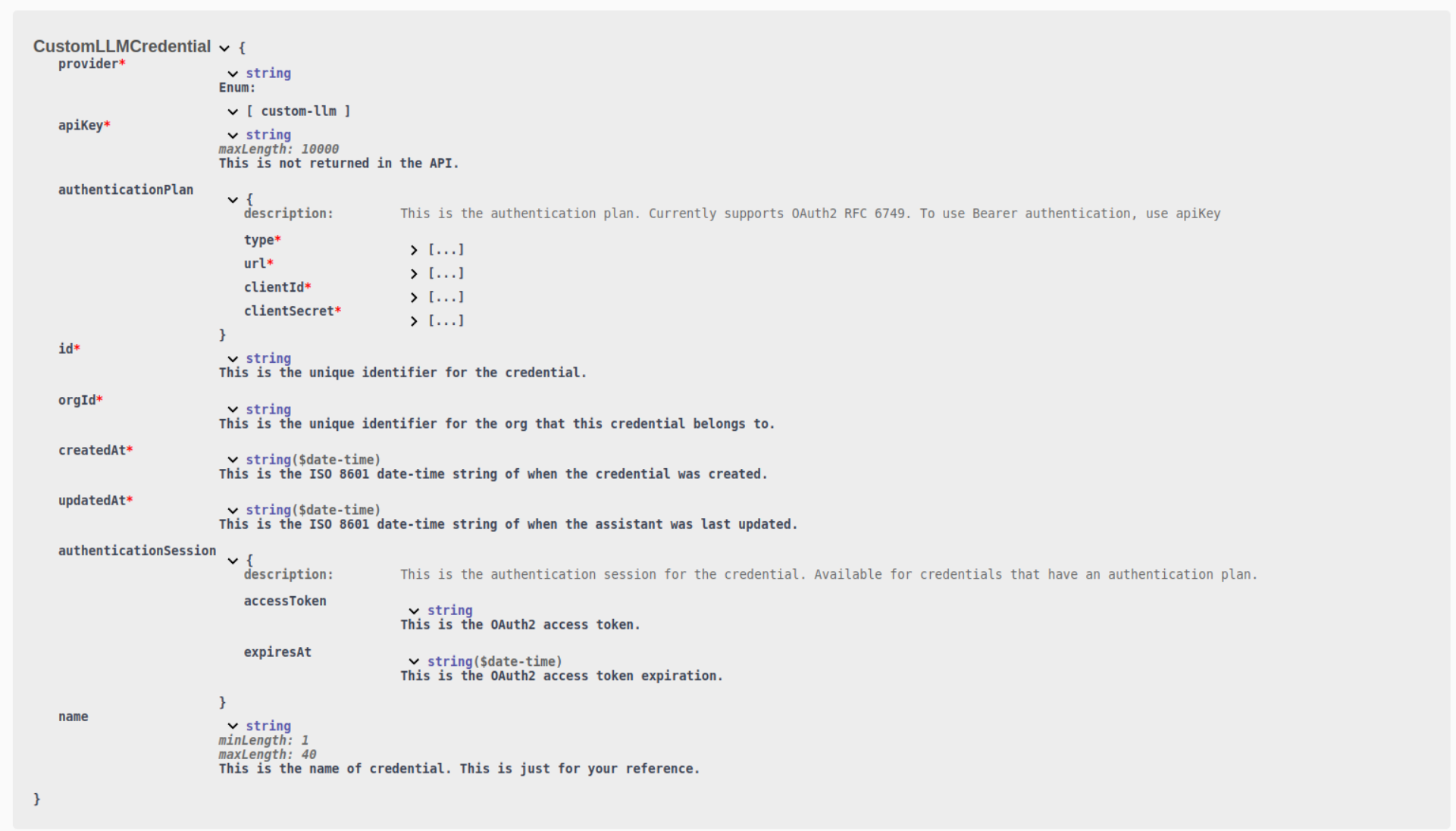Get the (almost) daily changelog
- OAuth 2 Authentication for Custom LLM Models and Webhooks: In addition to (AuthZ)[https://www.okta.com/identity-101/authentication-vs-authorization/], you can now now authenticate users accessing your custom LLMs and server urls (aka webhooks) using OAuth2 (RFC 6749). Use the
authenticationSessiondictionary which contains anaccessTokenandexpiresAtdatetime to authenticate further requests to your custom LLM or server URL.
For example, create a webhook credential with CreateCustomLLMCredentialDTO with the following payload:
This returns a CustomLLMCredential object as follows:

Refer to the CustomLLMCredential schema for more information
This can be used to authenticate successive requests to your custom LLM or server URL.